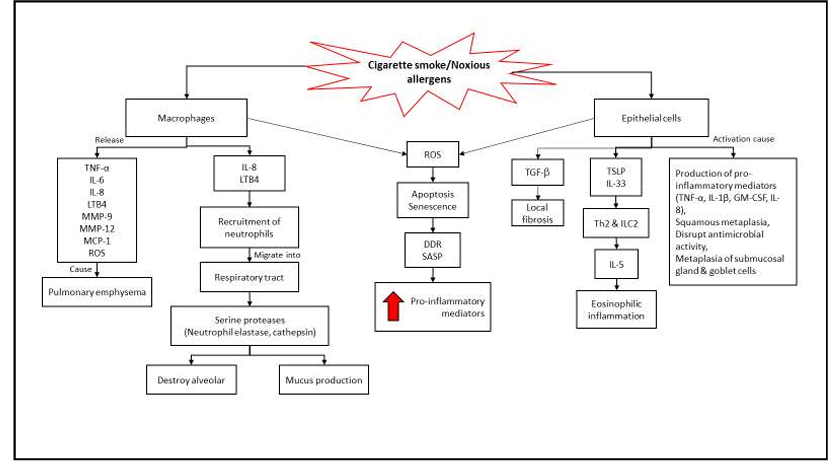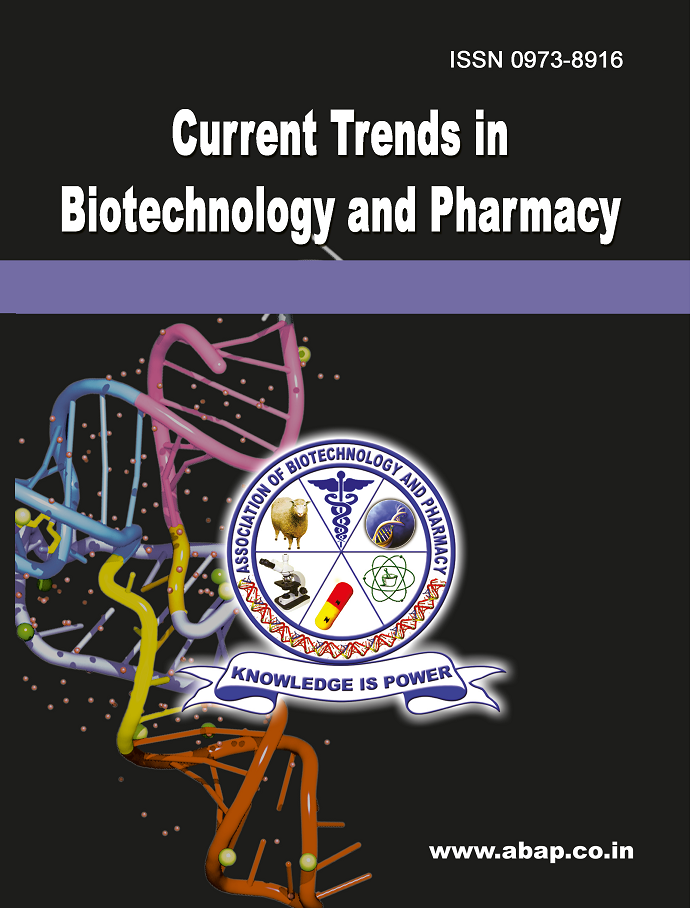Chronic inflammation diseases of the lungs
DOI:
https://doi.org/10.5530/ctbp.2023.4s.98Keywords:
Chronic inflammation, asthma, chronic obstructive pulmonary diseaseAbstract
Chronic inflammation is a low-grade, persistent, and non-resolving age-related condition that is associated with damage associated molecular patterns, unlike acute inflammation. Driven by many factors such as chronic infections, lifestyle, exposure to environmental and industrial toxicants, and others, chronic inflammation increases the risk of metabolic diseases that are of burden to the healthcare system. Asthma and chronic obstructive pulmonary disease (COPD) are examples of chronic inflammation diseases affecting the lungs. Asthma and chronic obstructive pulmonary disease (COPD) are examples of chronic inflammation diseases affecting the lungs. These chronic respiratory diseases are exacerbations of acute inflammation due to the continual cycle of production and secretion of proinflammatory mediators, even without the initial stimulus. These proinflammatory mediators are secreted by different types of immune cells, making asthma and COPD taking a more heterogenous profile than initially thought. Through continuous research, asthma, which was initially thought to be mainly eosinophilic, has seen the involvement of mast cells and neutrophils. Similarly, with COPD, which is more neutrophilic, sees the involvement of macrophages and eosinophils. The following review briefly illustrates the roles of the different immune cells and proinflammatory mediators in asthma and COPD, highlighting the importance of continuous research that will help improve the management of these debilitating diseases.



